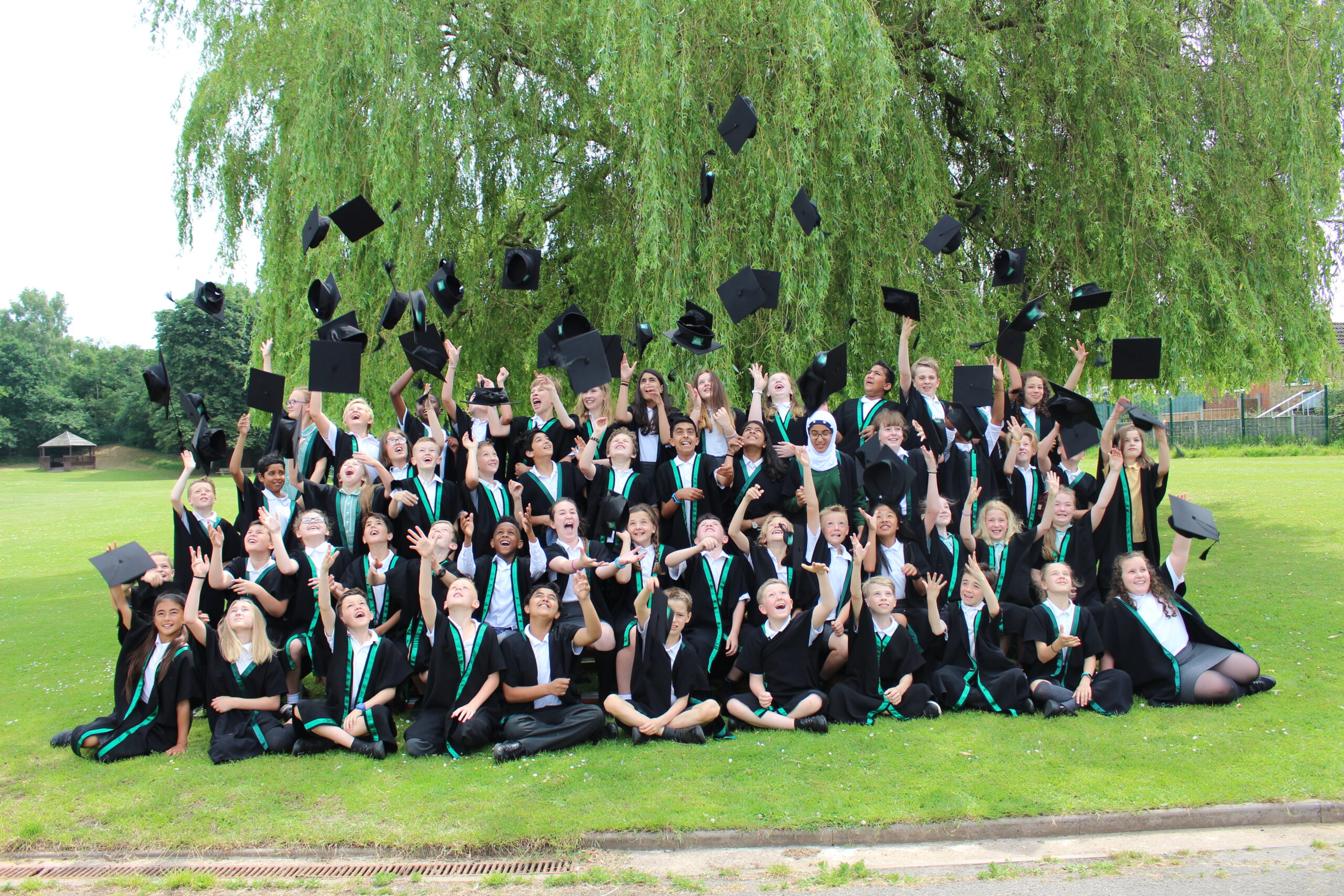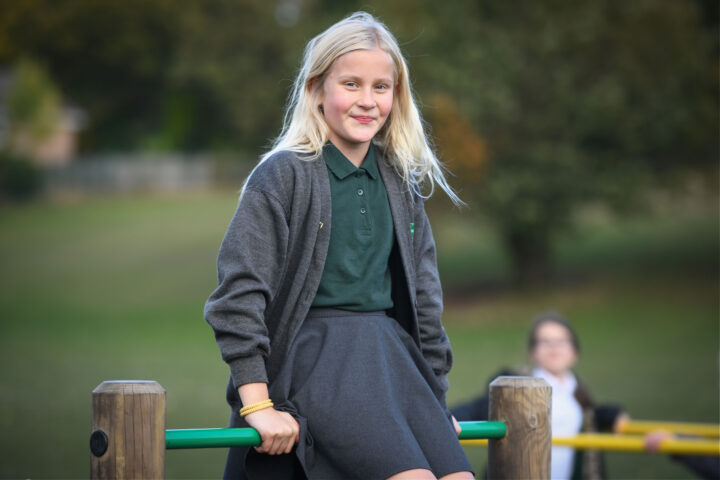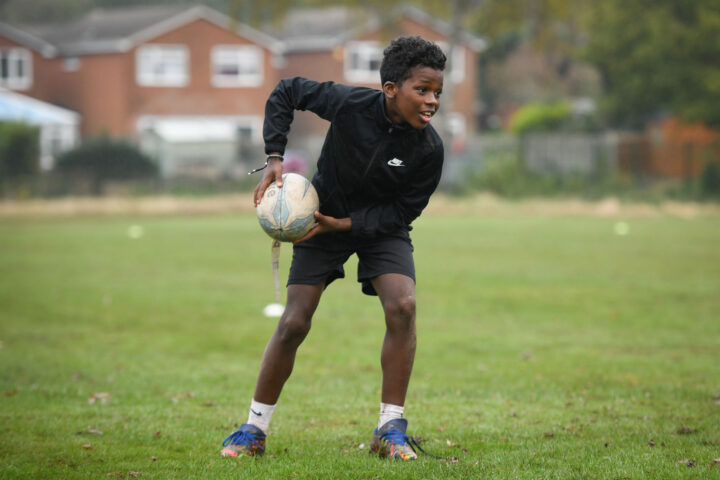Year 6

Year 6
In Year 6, we are committed to ensuring that all of our children reach their full potential, as we prepare them for their transition into secondary school. Throughout the year, children continue to work hard and make rapid and sustained progress, developing a range of new skills, as well as refining and practising those acquired during the rest of Key Stage Two. We continue to promote personal attributes of self-reflection, determination, perseverance, and collaboration to ensure that our children are ready to take full advantage of the exciting opportunities and challenges presented by their future studies and life beyond school.

Through an engaging and challenging curriculum, children explore a number of topics in the statutory subjects of History, Geography, Art, Design Technology, Music, Computing, Physical Education, Religious Education and Personal Development and Well-being (PDW), with skills and knowledge content assessed against our schemes of work which are used to plan teaching sequences across the three terms of the school year. In their final period of primary school, children develop their historical and geographical enquiry skills through our Victorians, World War One, How Britain has changed since 1948 and a local study of Canals; as well as and Environmental Change units; describe the global distribution of climate zones; identify and locate vegetation belts and biomes in their study of Africa; understand how climate impacts vegetation belts; explore the impact of long-term variations in weather and climate and complete a case study of the continent of Asia, developing awareness of how human and physical processes interact to influence and change landscapes, environment and climate.
Our children continue to study a wide range of artists and musicians, including Lubina Himid, Claire Harrup, Rae Smith, Thomas Witte, Mike Barrett and Henri Mattisse; Mozart, Franz Schubert, Carole King and create pieces inspired by their styles. Children are also taught to use different applications and websites to code sequences of movements for mechanical robots, produce 3D modelling, creating variables within games, more refined algorithms and extend their digital literacy knowledge to include the prevalence of fake news, echo chambers and filter bubbles, alongside an understanding of how to recognise, respond to and protect themselves from risks that may be encountered when they are online. In PE, children build upon skills taught in previous years and apply them to sports including handball, athletics, gymnastics, cricket, rounders and basketball. Children continue to develop their oracy and fluency in reading, writing and speaking French and explore the beliefs, faiths and values of people in our wider community and across the world. Design Technology learning sees the children creating shortcrust pastry tarts, using embroidery when stitching to create a Christmas decoration, creating a WW1 tank with moving components and a biome. Children have the opportunity to use their computing skills to present data in different formats, applying their Maths knowledge to use the graphs they produce to analyse data trends, identify anomalies and pose further scientific questions effectively.
Mathematics
In maths, through CanDo, we teach with the expectation that all children will achieve mastery in every concept taught. Children are taught how to: recognise the value of digits in numbers up to 10 million, confidently use the four operations in a range of contexts, compare and order fractions, calculate with fractions across all four operations, convert units of measurement, construct a range of 2D and 3D shapes with given properties, plot coordinates on a four-quadrant grid, interpret pie charts and begin to use algebra to find unknown values. Fluency, reasoning and problem solving opportunities are planned for all areas of the maths curriculum and children develop a deep conceptual understanding of the curriculum through the exploration and investigation of mathematical concepts.
English
We continue to instil a passion for reading and explore a wider range of classic and contemporary novels, which are linked closely to the wider curriculum and build progressively on skills acquired across Key Stage Two. Children analyse symbolism and allegory in classics such as Charles Dickens’ Oliver Twist and explore how figurative language is used in gothic novels to impact on the reader. Visual Literacy texts such as The Piano are used to stimulate emotive narrative writing, with children manipulating their use of tenses with intention and control. Through a wide exposure to a range of genres, children learn how to compare and contrast the works of different authors and are able to describe similarities and differences in the social, cultural, moral and historical themes of texts they have read.
Through reading, children are able to identify and comment upon the structure and organisation of a range of non-fiction texts, including newspapers and diaries and use these texts to inspire their own writing compositions. Our children are encouraged to write across a range of genres and for different purposes, refining their use of genre-specific features and learning how to use language, sentence structures and advanced punctuation for effect.
Science
In Science, children continue to develop a range of investigative skills, across a variety of topics including evolution and inheritance, living things and their habitats, light and electricity. They are taught to identify independent, dependent and control variables and begin to comment on the limitations of tests, refining further tests to prove and refute widely-accepted scientific concepts. Linked with Personal Development and Well-being children in Year 6 are also taught sex education as part of our relationships and sex education curriculum (detail of which can be found on our PDW pages).

Key Questions to drive learning and progress
- How did Nobody arrive at the graveyard?
- What is the weapon of the Sleer?
- What was life like in a Victorian Workhouse?
- What were the causes of the first world war?
- Who are the pioneers of the theory of Evolution?
- What makes the Human Body tick?
- Why is it important to see life from different perspectives?
- What was the most important piece of technology in WW1?
Exciting Events in Year 6
- Visit to Birmingham Hippodrome – Pantomime
- Residential trip to Rue in France
- Visit to the Imperial War Museum in London
- Local Area Fieldwork; Birmingham Canals
- STEM workshop on buildings and structures
- End of Year Production
- Graduation
Class Novels include
Alice in Wonderland by Lewis Carroll, War Horse by Michael Morpurgo, Wonder by R.J.Palacio, Skellig by David Almond, Pig Heart Boy by Malorie Blackman and Oliver Twist by Charles Dickens.
